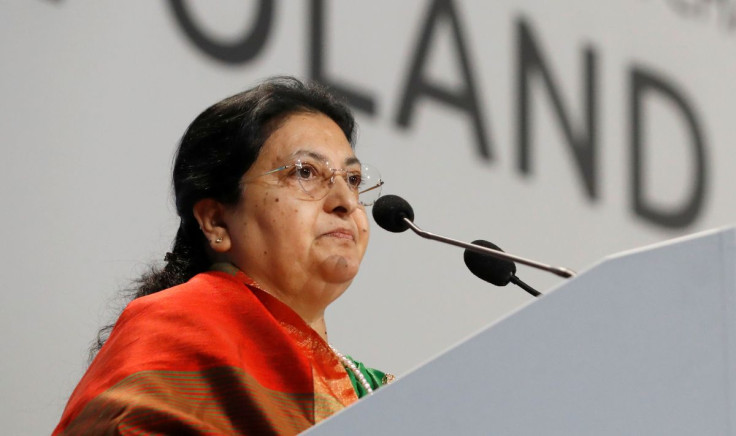Nepal’s Nascent Democracy Faces A Presidential Problem

In the Himalayan nation of Nepal, on one side is the ceremonial President, and on the other is the executive government. Caught between them are some 600,000 stateless citizens who cannot even get a mobile phone SIM card, let alone start a business.
Being stateless has deprived them of the chance to study, get jobs and undertake foreign travel. They were banking heavily on the Nepal Citizenship Act (2006) Amendment Bill 2022, passed by both houses of the parliament. But the President, Bidya Devi Bhandari, has refused to authenticate it to turn it into a law.
Although the Nepali constitution, which came into force in 2015, allows children of parents who have citizenship by birth to get citizenship by descent, more than half a million youths are deprived of citizenship in absence of an appropraite law.
After a long struggle, the Citizenship Bill was passed by the two houses of Parliament, but Bhandari on Aug. 14 forwarded the bill with her 15-point suggestions to the House of Representatives for a review.
According to Bhandari, several provisions in the bill are discriminatory to women, including the self-declaration that "the whereabouts of husband were unknown" to get citizenship for a child in a mother's name. The bill plans to confer citizenship to children in the mother's name.
Another concern of the President is the cooling-off period before granting naturalized citizenship to Nepali citizens married to foreign nationals.
However, the lower house endorsed the bill on Aug. 18 without addressing any one of the President's concerns.
The bill was subsequently passed by the National Assembly in the same form and re-sent to the President for authentication. Her constitutional option of endorsing it within 15 days ended on Sep. 20.
According to the government, to address the concerns raised by the President, there should be amendments made to the constitutional provisions.
"If we have to do this, we need a new law altogether and it is time-consuming given our past experience. So, to address the situation of statelessness, we decided to bring the amendment bill," said Home Minister Bal Krishna Khand on Sep. 22.
Khand said that the objective of the bill was to clear the hurdles to provide citizenship to thousands of children of parents who have acquired citizenship by birth.
The stateless youths staged a sit-in protest in the capital Kathmandu on Sep. 20 against the delay in authenticating the bill.
They urged President Bhandari to authenticate the bill at the earliest as their future is tied to the proposed bill.
Last week, Bhandari consulted legal experts and civil society members. She continued the same exercise on Sep. 21 by meeting army officials.
However, the President holding consultations with experts and army officials to decide her future course of action has bothered the government in the nascent democracy.
The ruling party alliance is feeling that the President is putting pressure on the government to further her political ambitions.
Political parties are also divided -- the ruling coalition of the Nepali Congress, the CPN (Maoist Centre), the CPN (Unified Socialist), the Janata Samajbadi Party and the Rashtriya Janamorcha, favor the bill, while the CPN-UML is siding with the President and has called for its thorough review.
The bill was endorsed by the lower house on July 22, and by the upper house on July 28. Ever since the bill came to her on July 31 for approval, President Bhandari had been consulting experts, which many observers said was beyond her jurisdiction as a ceremonial president.
However, the Office of the President is maintaining that her move is in line with the constitution.
"The President has been acting in line with the constitution," said Lalbabu Yadav, political affairs adviser to President Bhandari.
Already, political parties are getting their acts together against the president as the constitution does not allow the President to refuse to authenticate a bill.
Meen Bahadur Bishwakarma, a leader of the Nepali Congress, has already hinted at what is in store for the president.
"When the President, Vice President, or members of a constitutional body violate the constitution, they can be impeached," said Bishwakarma.
But the option of impeachment is out of the question as the Parliament tenure ended Sep.17 to face the polls on Nov. 20. The question is who will tame the President now?
Sixty-one-year-old Bhandari and 600,000 hapless stateless citizens will surely exert a pull on the polls in the landlocked country.
























